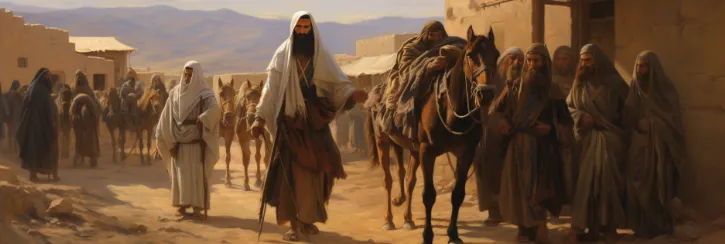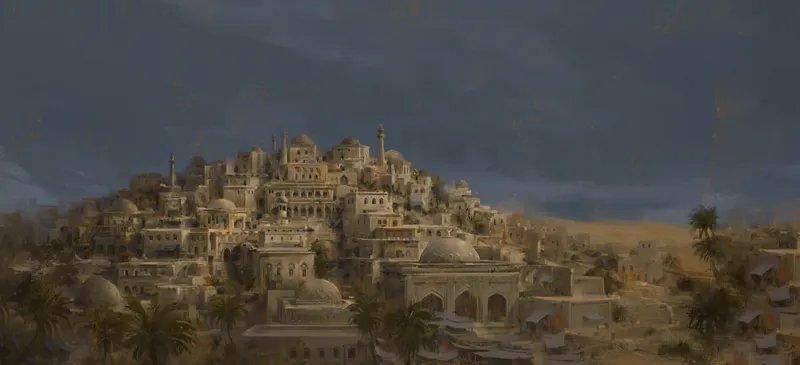Bedouin Culture

Commands
The following command will set your culture to 'Bedouin.'
The following command will change the culture of the specified county to 'Bedouin.'
Information
| Name | Bedouin |
| Culture ID | bedouin |
| Heritage | Arabic |
| Ethos | Stoic |
| Language | Arabic |
| Architecture | Arabic |
| Fashion | Abbasid |
| Coat of Arms | Arabic |
| Military Equipment | Arabic |
Overview
The Bedouin culture is a significant component of Arabian societies often characterized by their nomadic lifestyle. The term "Bedouin" itself translates to "desert dwellers" in Arabic, highlighting their adaptation to harsh desert climates.
Traditionally, the Bedouin led a pastoral lifestyle, moving their herds to optimal grazing grounds with changing seasons. They lived in familial tented camps and relied primarily on sheep, goat, camel, and horse husbandry. Fundamentally, the Bedouin way of life was built upon strict societal codes. Hospitality, loyalty, and honor were paramount virtues and their tribal structure was essential for survival and decision-making.
Their oral tradition helped preserve rich histories and mythology, while the art of storytelling illuminated Bedouin wisdom and law. Poetry had exceptional significance as it reflected their love for language, appreciation for nature, and was often used for communication.
As contemporary states have emerged, the Bedouin way of life has been heavily affected. Many have adopted a semi-nomadic or settled lifestyle, shifting from herding to various modern occupations. Despite such changes, Bedouin communities continue to cherish and retain their traditional culture, promoting their distinct Arabian identity worldwide. Their resilience and adaptability remain as inspiring reminders of how humans can thrive even in the most challenging environments.
Stoic Ethos

Stoic Ethos
This culture believes in standing strong like a mountain, taking any and all hardships that life may throw at them and enduring them all with grim determination and an indomitable spirit.
- +5 Defender Advantage
- -15% Stress Gain
- -15% Friendly Fatal Casualties
- +0.25 Disease Resistance Health Boost
Each culture will have an ethos, which represents the core values, principles and attitude towards life that the culture has. It also determines which court types are available for kingdoms and empires.
Bedouin Traditions
- Caravaneers
- Desert Travelers
- Mubarizun
- Tribal Unity
- Avid Falconers with Tours and Tournaments
Each culture will have several traditions, which represent the main customs of a culture and can grant various effects. A culture can have up to five traditions in the tribal era, with every additional era reached granting an additional slot for Traditions.
Bedouin Architecture
Arabic
